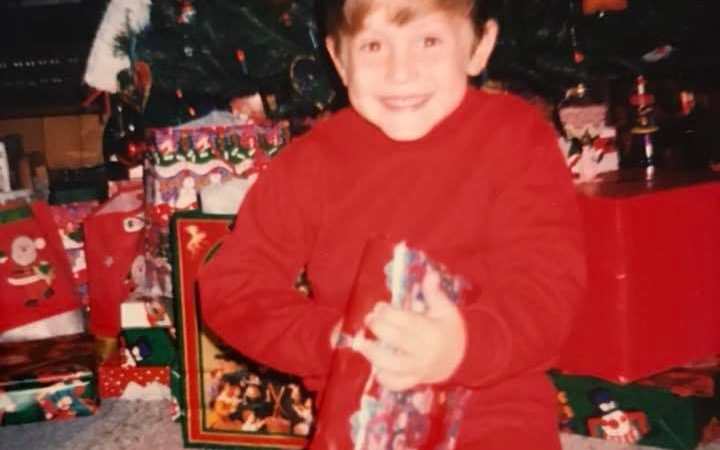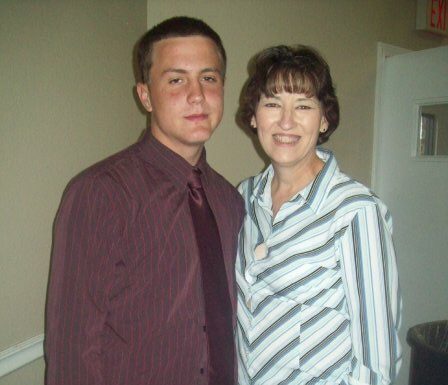Do’s and Don’ts for Emotional Health while Recovering from a Natural Disaster…
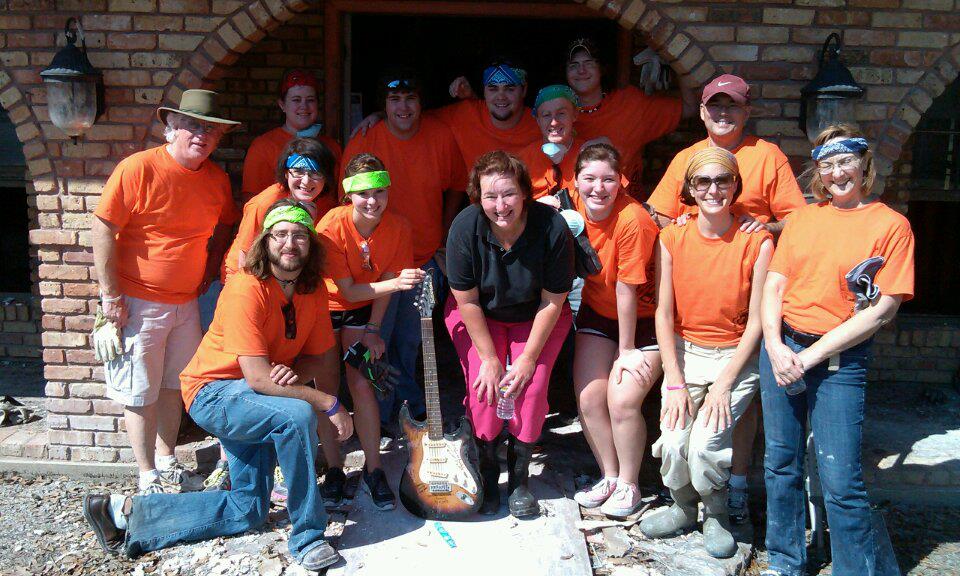
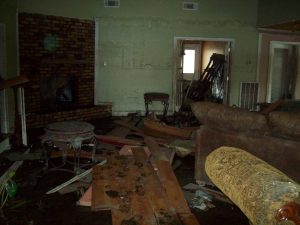 Next week marks the 11th and 4th anniversaries of Hurricanes Katrina and Isaac, respectively. Many extended family (including my parents and brothers) lost everything in Katrina. Seven years later, our immediate family (my husband and I and our two children) lost everything during Isaac. Our home was flooded with 14 feet of water. Even items that we’d moved to safety (presumably) on the second floor did not survive. Now here we are in 2016 and it’s happened again, this time to many of our family and friends in other parts of Louisiana. The physical journey we’ve all had to go through (or are now going through) is tough, but the emotional side of the journey is even more unsettling and difficult. Here are some do’s my husband and I learned during our recovery:
Next week marks the 11th and 4th anniversaries of Hurricanes Katrina and Isaac, respectively. Many extended family (including my parents and brothers) lost everything in Katrina. Seven years later, our immediate family (my husband and I and our two children) lost everything during Isaac. Our home was flooded with 14 feet of water. Even items that we’d moved to safety (presumably) on the second floor did not survive. Now here we are in 2016 and it’s happened again, this time to many of our family and friends in other parts of Louisiana. The physical journey we’ve all had to go through (or are now going through) is tough, but the emotional side of the journey is even more unsettling and difficult. Here are some do’s my husband and I learned during our recovery:
- Do be patient and take it one day at a time… Recovery doesn’t happen overnight and insurance and other resources for income and assistance do not pay off immediately. Hang in there. Do what you can while you can. It seems cliche to say “This too shall pass…” but it really does pass. You will work your fanny off for months, but at some point, you’ll suddenly discover you’ve accomplished much more than you ever imagined you could, and you’ll realize how close you are to the finish line.
- Do be an advocate for your cause… One of the most difficult things for us to do is accept “charity.” When we were going through recovery from Isaac, we quickly realized we could not do it on our own. It’s okay to ask for assistance! There are so many people who want to help but don’t know how. Post messages (often) asking for specific help on your social media pages. Don’t assume that everyone knows what you need and when you need it, or that everyone will see your one post asking for general help and know what to do in response. Also, keep in mind that there are lots of non-profit agencies willing to help as well, but you have to be willing to do the research and request that help. Google is a great tool for finding that support. Make sure you check regularly and watch the news as in emergency cases, not every resource available to help is able to get the word out quickly. Ask your friends to keep you posted as well when they hear news about help that is available.
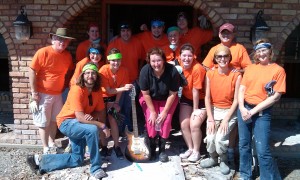 Do team up with your neighbors and friends… When Hurricane Isaac ripped through the community of Braithwaite Park, members of our homeowners association formed a non-profit, “Braithwaite Matters,” and began helping one another. Donations that were over and above our needs were shared with other communities impacted by the storm. Residents formed informal teams as well. While working on our own home, we took turns with some of the neighbors moving heavy things that required more hands. We ran back and forth from one house to another helping each other. That’s what community is all about. Team up with those you know who have been impacted and see what you can do for each other.
Do team up with your neighbors and friends… When Hurricane Isaac ripped through the community of Braithwaite Park, members of our homeowners association formed a non-profit, “Braithwaite Matters,” and began helping one another. Donations that were over and above our needs were shared with other communities impacted by the storm. Residents formed informal teams as well. While working on our own home, we took turns with some of the neighbors moving heavy things that required more hands. We ran back and forth from one house to another helping each other. That’s what community is all about. Team up with those you know who have been impacted and see what you can do for each other.- Do be good to yourself… As we were accepting donations of various items from many different sources, I felt guilty. I hesitated to do anything for myself that would cost money that could be used for recovery. I chopped at my own hair and even avoided doctor’s appointments that were simply routine. I stopped taking care of myself because I made my home my priority. Then, suddenly, I spoke with a Pastor who helped me put things in perspective. He reminded me that many of those who had donated to help us did so because they loved us, not because they wanted us to have a nice house. He reminded me that we, as people, were more important than the things the money would provide. He reminded me that my friends trusted me to use the resources they’d provided as we saw fit. Make sure you take time for yourself during the recovery. Set aside a few hours a week to do something special for you and your immediately family – go out to dinner, go to a movie, or just sit and enjoy each other’s company.
- Do look for silver linings… It’s been said that “every cloud has a silver lining.” I believe that to be true. The silver lining for us with Hurricane Isaac was that thanks to our insurance paying off and the Small Business Association offering us a loan at a low interest rate, we were able to purchase a new home at a much lower note. Our financial position drastically changed and we were no longer living paycheck to paycheck because of high insurance costs and an inflated house note. Every cloud does have a silver lining, but in some cases, you have to look a little harder to find them. Keep your eyes open. I’m sure you’ll discover some rainbows along the way.
We also learned a few things not to do during our recovery:
- Don’t agonize over stuff… Most things are replaceable and those that aren’t won’t keep you from living a wonderful life. As we were removing the wet and moldy items from my parents’ home following Katrina, it broke my heart to realize a big, lumpy and smelly rectangular object turned out to be their wedding album. When I dropped it on the pile, it popped open and revealed my mom’s beautiful smile covered in mold and mud. As I pealed back the plastic cover on one picture, it took the top layer of the image with it. We’d heard that some photos were recoverable, but we also knew it was not likely with this and would be expensive. With our parents’ permission, we opted to discard the soggy mess. My husband and I went through a similar experience with our own photos after Isaac. I wept as I tossed one album after another of baby pictures into the trash pile, but I can honestly tell you that I haven’t thought much about it since. With a simple email to some close relatives and friends, we received copies of many old photos. Thanks to FaceBook, many of our recent photos were in digital format and easily accessible. Do I ever wish I had certain pictures? Sure, but the loss of this memorabilia hasn’t scarred me in any way.
 Don’t expect the world to stop revolving… Life goes on. It’s business as usual. Bills will still arrive. Tuition will still come due. Meetings will still take place. Understand that lots of people around you are not going through the same things as you and some may not be aware of your struggles. Don’t hesitate to share with them what’s happening. When our home flooded during Hurricane Isaac, my son was in the hospital two hours away. A quick phone call to some friends who lived near the hospital was all it took to get the support we needed. Several good friends volunteered to sit with him on days when we were tied up with recovery efforts. We also discovered that late charges were quickly removed when we contacted bill collectors and let them know the situation. Again, life doesn’t stop for everyone because some people are in recovery mode, but that doesn’t mean you’re forgotten or that people don’t care. Communicating with them is critical.
Don’t expect the world to stop revolving… Life goes on. It’s business as usual. Bills will still arrive. Tuition will still come due. Meetings will still take place. Understand that lots of people around you are not going through the same things as you and some may not be aware of your struggles. Don’t hesitate to share with them what’s happening. When our home flooded during Hurricane Isaac, my son was in the hospital two hours away. A quick phone call to some friends who lived near the hospital was all it took to get the support we needed. Several good friends volunteered to sit with him on days when we were tied up with recovery efforts. We also discovered that late charges were quickly removed when we contacted bill collectors and let them know the situation. Again, life doesn’t stop for everyone because some people are in recovery mode, but that doesn’t mean you’re forgotten or that people don’t care. Communicating with them is critical.- Don’t be bitter… Sometimes when you’re going through a crisis like this, it’s easy to expect others to mourn with you, and while they probably do, they won’t be as consumed with the grief as you. Some will be living out happy experiences (weddings, births, vacations, etc.) and smiling in all of their Facebook photos. Here’s the deal… it’s not only okay for them to smile, you should be smiling with them! When you can’t have joy of your own, share the joy of others. Remember, too, that while some are recovering, others still have regular commitments they have to fulfill. Some will provide help when they are able. Others will not help at all. It isn’t because they are bad people. It doesn’t mean they don’t care or that they are insensitive to your needs. Some people are not equipped to deal with the recovery and others may simply be too busy. Respect that and allow everyone to help in various ways as they are able.
I hope these lists help you and yours as you recover. C.S. Lewis once wrote “Hardships often prepare ordinary people for an extraordinary journey.” My thoughts and prayers are with you all for an amazingly extraordinary journey.
Contact me (tina@tinaguillot.com) to speak about the emotional side of recovery at your next community meeting.

